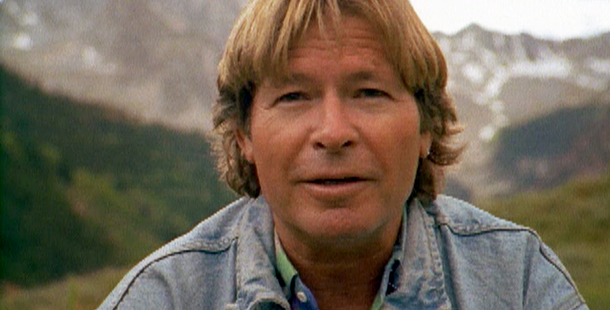
About the song
John Denver’s Trail of Tears. Now that’s a song that resonates deeply, a poignant ballad that takes us back to a dark chapter in American history. Denver, known for his folksy optimism and odes to nature, took a stark turn with this track, confronting the forced removal of Native American tribes in the 1830s.
---> Scroll down for the VIDEO
Released in 1985 on his album Dreamland Express, Trail of Tears stands out from Denver’s usual repertoire. While his music often celebrated the beauty of the American landscape, this song lays bare the human cost of westward expansion. It’s a powerful reminder that the settlement of the frontier wasn’t always a story of rugged individualism and cowboys.
Trail of Tears isn’t Denver’s original composition. The credit goes to songwriting trio Roger Cook, Allen Reynolds, and Randy Handley. But Denver’s interpretation elevates the material. His signature warm vocals lend a melancholic beauty to the lyrics, painting a vivid picture of loss and displacement.
---> Scroll down for the VIDEO
The song opens with a sense of foreboding: “No more beautiful moons may we spend on our land.” This sets the stage for the tragedy to unfold. The “scarlet council” most likely refers to the U.S. government, their decision to displace Native American tribes deemed an act of war by the song. The violence is alluded to with references to “long knives” and “burned corn,” leaving no doubt about the brutality of the forced removal.
Trail of Tears isn’t just about physical displacement; it’s about the severing of cultural ties. The lyrics speak of the fading songs of hunters, the smoke from sacred fires no longer touching the hills. This reflects the erosion of traditions and the deep connection these tribes had with their ancestral lands.
The chorus, a haunting refrain of “There will be a trail of tears, There will be a trail of pain,” becomes a powerful indictment of the policy. It’s a constant reminder of the suffering endured by thousands forced to walk hundreds of miles in harsh conditions.
The later verses paint a picture of despair and a desperate attempt to preserve traditions. Rapid City and Wounded Knee, locations forever etched in American history, become symbols of loss and broken promises. The mention of whiskey on these streets hints at a coping mechanism for the trauma inflicted.
Trail of Tears doesn’t shy away from assigning blame. The line “And Jackson will have the Mississippi and the twenty dollar bill” directly references President Andrew Jackson, a key figure in the Indian Removal Act of 1830. The song suggests that greed and political gain were the driving forces behind the displacement.
The song ends with a glimmer of hope, a plea for “learning from each other, the way that it had once been meant to be.” It’s a call for reconciliation and understanding, a sentiment that resonates even more powerfully today.
John Denver’s Trail of Tears is more than just a ballad; it’s a historical record etched in song. It reminds us of the human cost of progress and the importance of acknowledging the past. It’s a song that deserves to be heard, a reminder of the resilience of the human spirit in the face of immense hardship.
Video
Lyrics
“Trail Of Tears”
And the long knives have massacred the tribes and burned corn,
we’re not welcome in our homeland anymore.
Jackson will have the Mississippi and the twenty-dollar bill,
but for us the trail is all that will remain.
No more songs of the hunters on the buffalo plain,
no more smoke from sacred fires touch these hills.
And the numbers of the people grow fewer every mile
and our children will not learn The Great Spirit’s ways.
There will be a trail of tears, there will be a trail of pain.
Jackson will have the Mississippi and the twenty-dollar bill,
but for us the trail is all that will remain.
On the streets of Rapid City, on the road to Wounded Knee,
there is whiskey for forgetting every thing.
But the old ones say there may be time learning from each other
the way that it had once been meant to be.
Jackson has got the Mississippi and the twenty-dollar bill
but for us the trail of tears is all that will remain.
Jackson has got the Mississippi and the twenty-dollar bill,
but how long will the trail of tears remain?